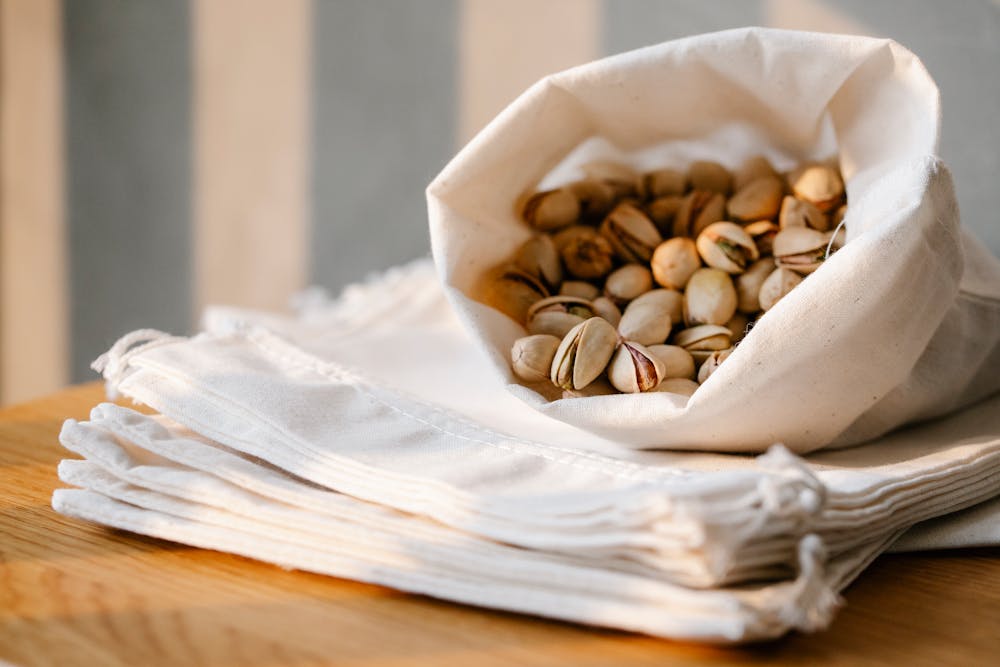Reducing food waste is something I’m passionate about, and sustainable cooking plays a crucial role in achieving this goal. Here are some tips that I’ve found helpful in minimizing food waste in my kitchen.
 Firstly, planning meals ahead of time is essential for reducing food waste. Before heading to the grocery store, take inventory of what you already have in your pantry, fridge, and freezer. Then, create a meal plan for the week based on ingredients that need to be used up. This helps prevent impulse purchases and ensures that everything gets eaten before it spoils.
Firstly, planning meals ahead of time is essential for reducing food waste. Before heading to the grocery store, take inventory of what you already have in your pantry, fridge, and freezer. Then, create a meal plan for the week based on ingredients that need to be used up. This helps prevent impulse purchases and ensures that everything gets eaten before it spoils.
 Another tip is to embrace leftovers and get creative with meal prep. Instead of letting unused ingredients go to waste, repurpose them into new dishes. For example, leftover vegetables can be added to soups, stir-fries, or omelets, while stale bread can be transformed into breadcrumbs or croutons.
Another tip is to embrace leftovers and get creative with meal prep. Instead of letting unused ingredients go to waste, repurpose them into new dishes. For example, leftover vegetables can be added to soups, stir-fries, or omelets, while stale bread can be transformed into breadcrumbs or croutons.
 Proper storage is key to prolonging the shelf life of perishable foods. Invest in airtight containers, reusable silicone bags, and produce storage bags to keep fruits and vegetables fresh for longer. Learn how to store different types of produce properly to prevent premature spoilage.
Proper storage is key to prolonging the shelf life of perishable foods. Invest in airtight containers, reusable silicone bags, and produce storage bags to keep fruits and vegetables fresh for longer. Learn how to store different types of produce properly to prevent premature spoilage.
 When it comes to cooking, use every part of the ingredient whenever possible. For example, carrot tops can be turned into pesto, broccoli stems can be chopped and added to stir-fries, and chicken bones can be simmered to make homemade broth. Get creative and think outside the box to make the most of every ingredient.
When it comes to cooking, use every part of the ingredient whenever possible. For example, carrot tops can be turned into pesto, broccoli stems can be chopped and added to stir-fries, and chicken bones can be simmered to make homemade broth. Get creative and think outside the box to make the most of every ingredient.
 Composting is another excellent way to reduce food waste and create nutrient-rich soil for your garden. Instead of throwing food scraps in the trash, set up a compost bin or pile in your backyard. Compostable items include fruit and vegetable peels, coffee grounds, eggshells, and more.
Composting is another excellent way to reduce food waste and create nutrient-rich soil for your garden. Instead of throwing food scraps in the trash, set up a compost bin or pile in your backyard. Compostable items include fruit and vegetable peels, coffee grounds, eggshells, and more.
 Lastly, be mindful of portion sizes when cooking and serving meals. Start with smaller portions and offer seconds if needed to prevent leftover food from going to waste. Encourage family members to take only what they can eat to minimize leftovers.
Lastly, be mindful of portion sizes when cooking and serving meals. Start with smaller portions and offer seconds if needed to prevent leftover food from going to waste. Encourage family members to take only what they can eat to minimize leftovers.
 In conclusion, sustainable cooking is all about minimizing food waste and making the most of the ingredients you have on hand. By planning meals ahead of time, embracing leftovers, practicing proper storage techniques, using every part of the ingredient, composting food scraps, and being mindful of portion sizes, you can significantly reduce your carbon footprint and contribute to a more sustainable food system. Let’s cook with intention and make every ingredient count!
In conclusion, sustainable cooking is all about minimizing food waste and making the most of the ingredients you have on hand. By planning meals ahead of time, embracing leftovers, practicing proper storage techniques, using every part of the ingredient, composting food scraps, and being mindful of portion sizes, you can significantly reduce your carbon footprint and contribute to a more sustainable food system. Let’s cook with intention and make every ingredient count!

